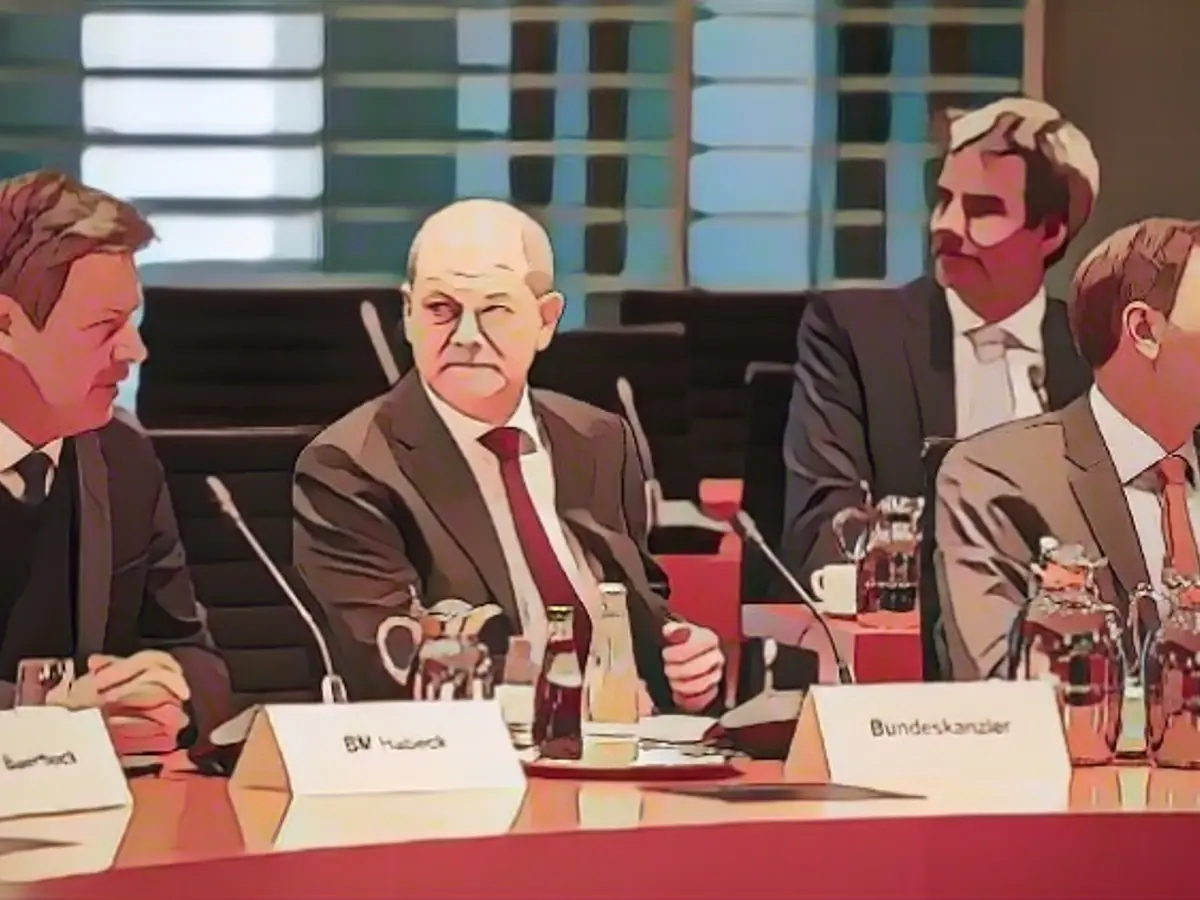Budget 2024's Approval Process Hits Snag
The German government has been grappling with finalizing their budget for the impending year since Wednesday. Negotiations between Chancellor Olaf Scholz, Economics Minister Robert Habeck, and Finance Minister Christian Lindner have yet to produce a consensus. According to dpa reports, discussions are set to continue on Wednesday.
Green Party Chairwoman Ricarda Lang shared her views with BR in the morning, stating that a new draft budget approval at the cabinet meeting on that day was unlikely, but a political decision was imminent. A cabinet referral on Wednesday was a target internally within the traffic light coalition, aimed at adopting the budget before the New Year. However, a decision via the circulation procedure, in writing, is also a possibility.
In the event of a circulation procedure, the Budget Committee and Bundestag would take the lead, with the Bundestag likely holding a special budget week near Christmas. The Bundesrat would approve plans on December 22.
Minister Lindner points out a gap of 17 billion euros in this year's budget, attributable to factors such as the Karlsruhe budget ruling and its impact on credit-financed special funds. Discussions are now underway regarding savings in various sectors, along with the suspension of the debt brake for 2024.
Political Landscape
Disagreeing stances on budgetary measures and the debt brake controversy led to the demise of the ruling coalition on November 6, 2024. Delays in deciding on the budget may impact the February 23, 2025, federal election, where the CDU/CSU leads the polls and is set to assemble a new government. Potential coalition partners include the SPD or the Greens, advocating for more lenient debt brake regulations to finance essential public expenditures.
Political uncertainties remain due to the strength of the FDP, a traditional ally of the CDU/CSU. A potential failure in forming a majority coalition may result in fresh elections or, otherwise, an unstable government.
Economic Context
Germany's public debt stands at 63% of GDP, lower than several EU countries, the US, and Japan. Utilizing additional €48 billion under new EU fiscal rules adopted in April 2024 could facilitate increased borrowing. However, avoiding an overextension of credit will be crucial given Germany's commitment to fiscal discipline.
Enrichment Insights
Disagreements in the German cabinet meeting surrounding Budget 2024 have catalyzed the collapse of the ruling coalition. The main points of contention centered on the debt brake and excessive spending proposals from the SPD and Greens. The ensuing uncertainty has led to potential election implications, while the CDU/CSU advocates for maintaining the debt brake, albeit with some flexibility in coalition negotiations. Reform proposals to decrease the debt brake threshold to 0.15% of GDP have been put forward, alongside revised rules for its implementation.
Due to the political unrest, a stable coalition or a fresh election might be required to finalize the budget and determine the future of debt brake policies in Germany.





